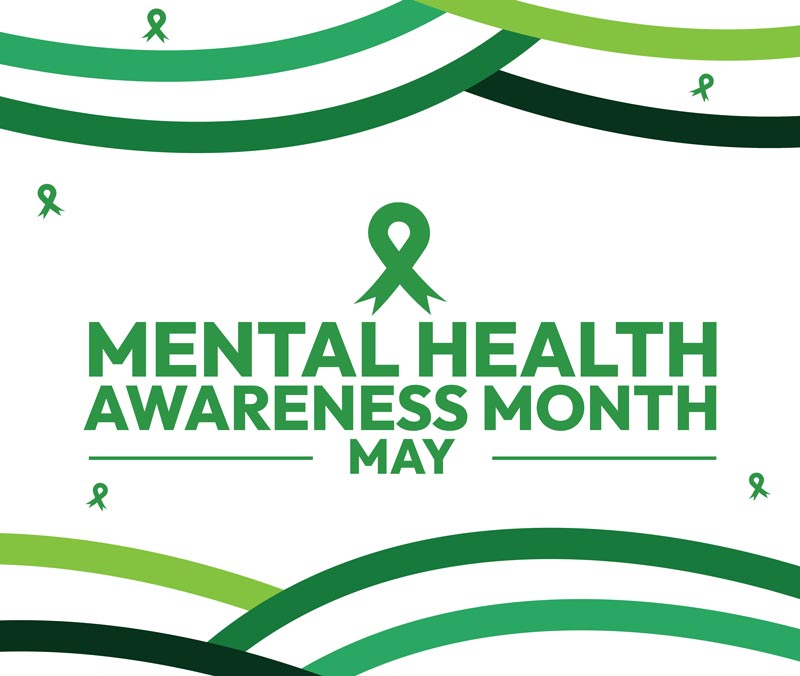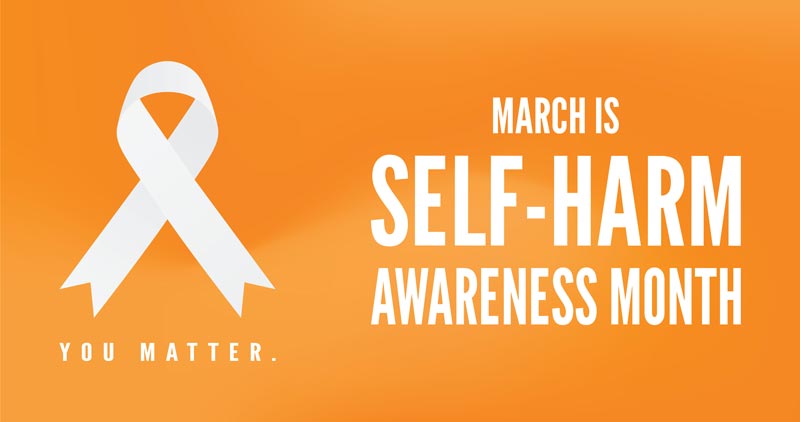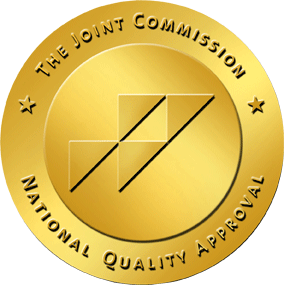“I’m SO OCD…” is a current social media trend with videos featuring how folks identify certain behaviors of their own among the obsessive-compulsive disorder (OCD) spectra. Unfortunately, like many trends, these videos do not give the full picture of the diagnosis. Clients coming to Skyway Behavioral Health with an OCD diagnosis benefit from comprehensive collaborative treatment that includes individual, group and somatic therapies—not from watching TikTok videos. More importantly, myths around a serious mental health diagnosis can create more harm for those already suffering. Here’s how you can be a better ally to anyone with OCD.
For starters, we need to peel back the common misconceptions around OCD. Considering its name, symptoms of OCD range within the realm of obsessive thoughts and compulsions (behaviors) that are acted upon. Consider your passing thoughts throughout each day. Do you act upon every single sentence that pops into your head? Probably not. People suffering from OCD obsessively ruminate upon their thoughts, but to alleviate those incessant thoughts they will then engage in behaviors. Oftentimes, these thoughts are followed with a need to “solve” the issue, and cling to our self-image, resulting in rumination (aka the compulsion) and/or action.
Does someone with OCD desire cleanliness and organization?
This is not entirely true. Maddie Maloon, Skyway Primary Therapist, shares that “obsessive thoughts and compulsions around cleaning and organization are only a fraction of the ways OCD can manifest. There are many OCD ‘themes’ despite the way this disorder has been portrayed in the media.” Obsessive thoughts can range from hurting others and losing control to sexual in nature and more. When people suffering from these thoughts become overwhelmed with them, they often turn to rituals or compulsions to help alleviate the anxiety. Folks suffering from OCD often fall into the trap of controlling their thoughts, and the cycle detailed above continues.
Wait, so someone with OCD MUST exhibit obsessive and compulsive behaviors?
Not exactly. Humans are complex! A subtype of OCD exists that is called “Pure O” or pure obsessional obsessive-compulsive disorder. It’s characterized by intrusive thoughts and
urges without physical compulsions. How is that possible, you ask? Sometimes compulsions may occur in a person’s head (replaying events over and over, for example) and are not visible to others. Folks experiencing “Pure O” OCD may have thoughts that fall into themes of harm, relational, sexual, religious or moral. As with most OCD sufferers, the obsessions come with guilt and shame, because they oftentimes feel like an attack on their self-worth. We must always remember, as allies, that speaking to intrusive thoughts/compulsions can help alleviate the feelings of guilt and shame. Can you relate to any of the abovementioned behaviors? Say it out loud!
When do OCD behaviors begin to emerge?
“While there is no specific age when OCD is commonly diagnosed, we do find that people may develop the disorder around elementary age or in early adulthood. We must consider biological, genetic and environmental factors and their impact on OCD symptoms and behaviors, as well,” says Maloon. Importantly, OCD symptoms can shift and change over time, so folks suffering should seek advice from an expert who can help navigate the landscape as it evolves.
Can someone with OCD find relief and support?
Absolutely! OCD is treatable, and with proper resources, anyone can progress toward a more fulfilling life free from debilitating symptoms. Maloon also shares that, “because OCD is a complex, multi-dimensional disorder, it can shift over time, and people may remain undiagnosed for years as a result.” It’s important to always pull in the knowledge of a reputable professional to support the use of valuable treatment options in your local area and online, when applicable. We see, too, that folks suffering from OCD may feel more strongly threatened in situations others may not. The key here is to name those feelings and to offer grace when tasked with establishing support and a “new normal.”
What can be done to fight the myths of OCD?
Education and support! If you or someone you love is exhibiting debilitating OCD behaviors, seek help. Anyone can learn to manage symptoms, which in turn empowers folks to speak to their own experiences and educate others to the facts. Education, advocacy and access to care are steps to overcoming mental health myths.
The Skyway team understand the complexities of OCD and work every day to empower recovery in each client’s life. Our assessment team is available throughout the week to evaluate [link to web inquiry page] the level of care and support we can provide to clients of all diagnostic profiles. While OCD is just one of many challenges we work with, we are committed to destigmatizing and combating false narratives around the diagnosis.




